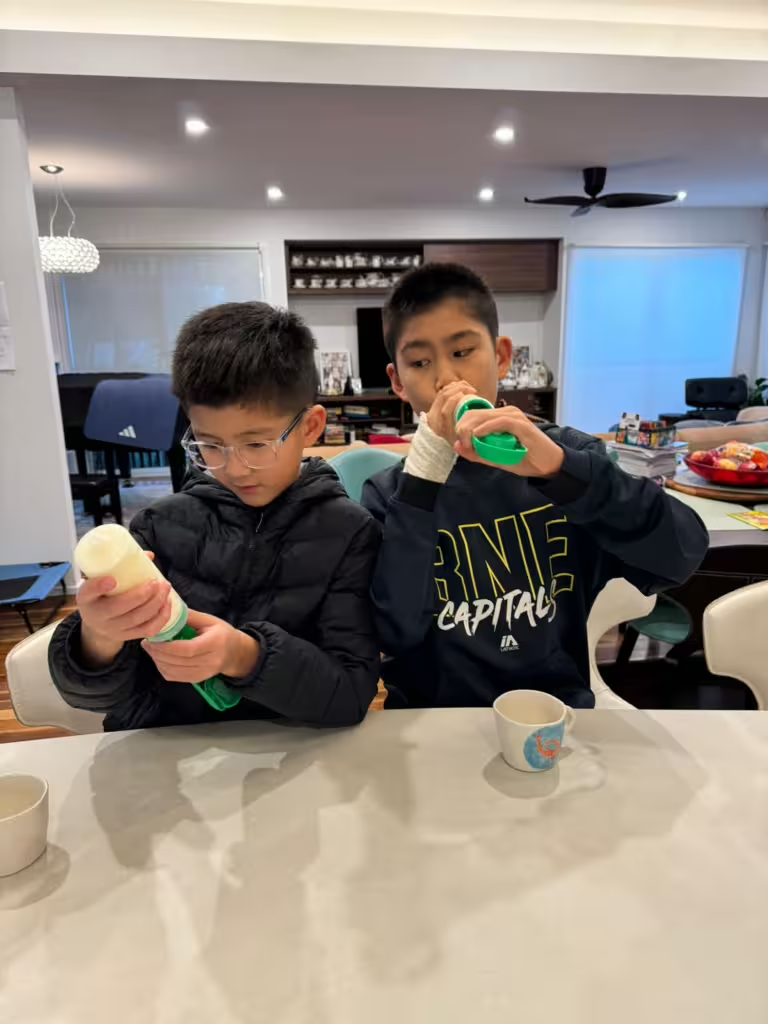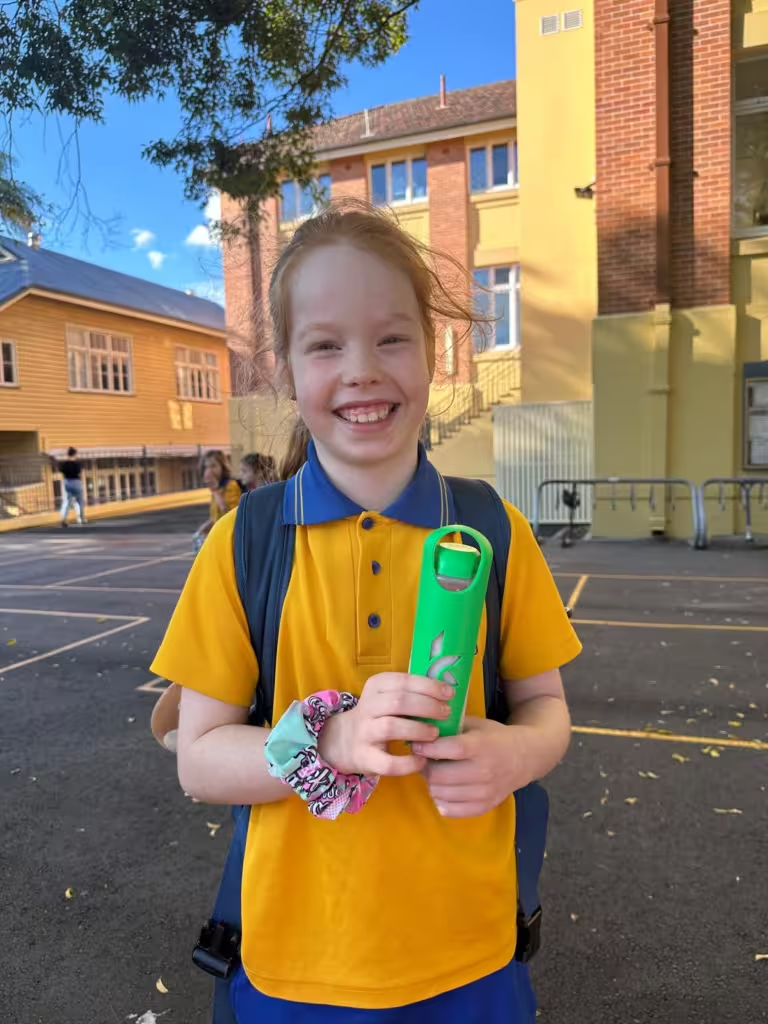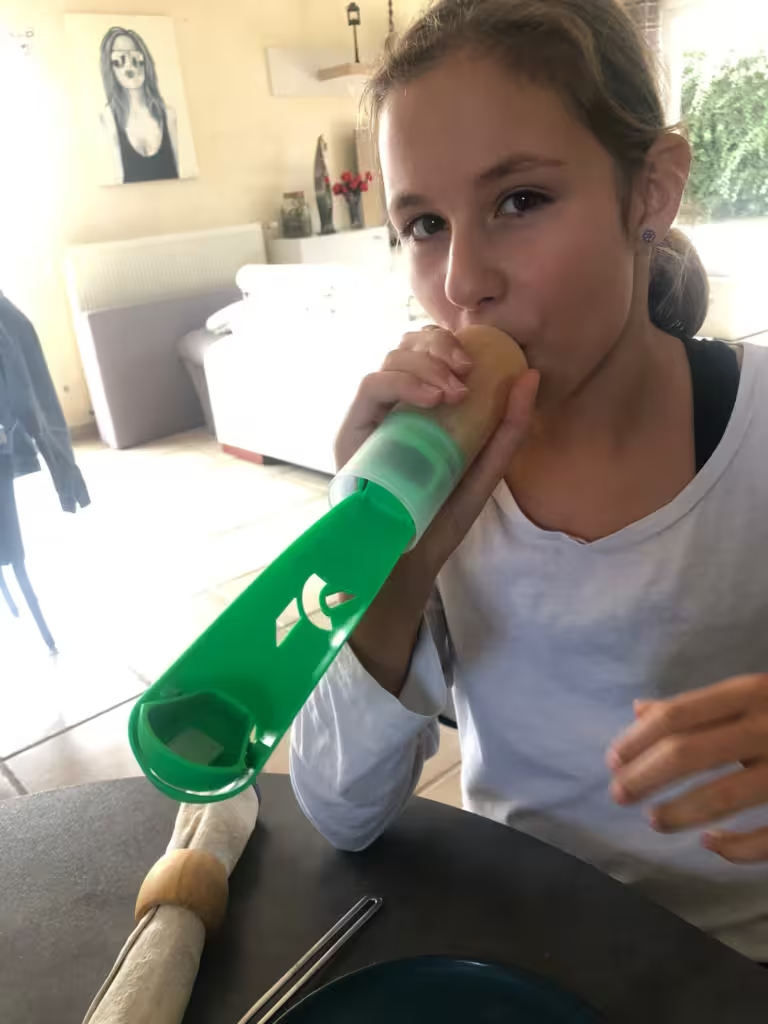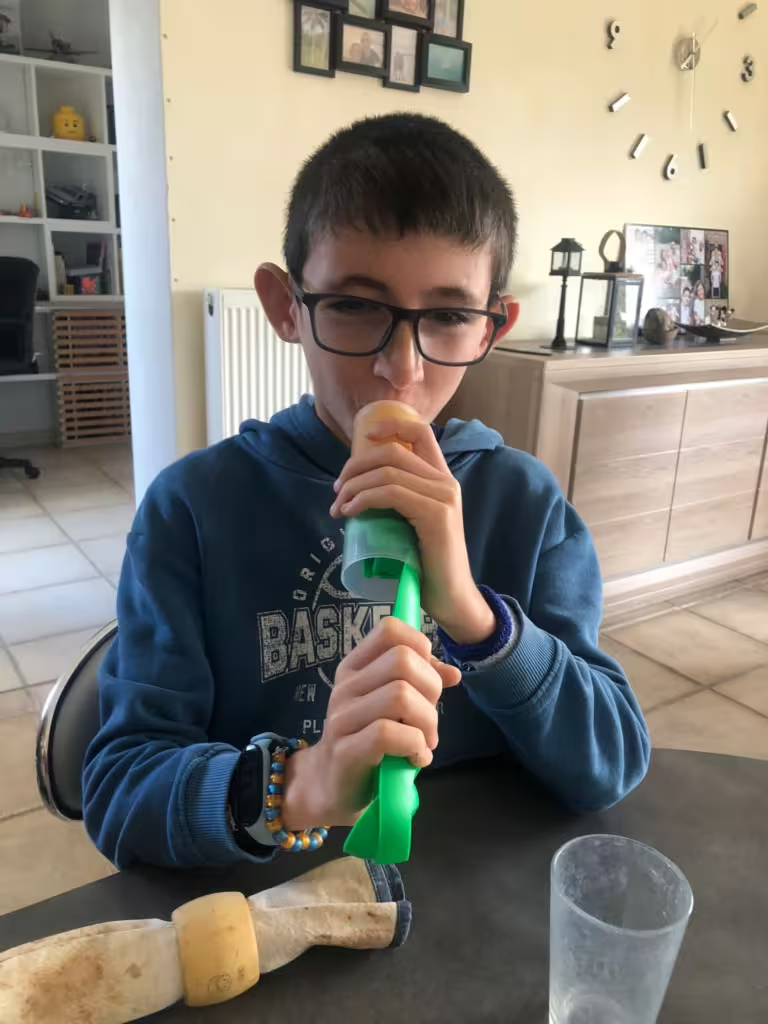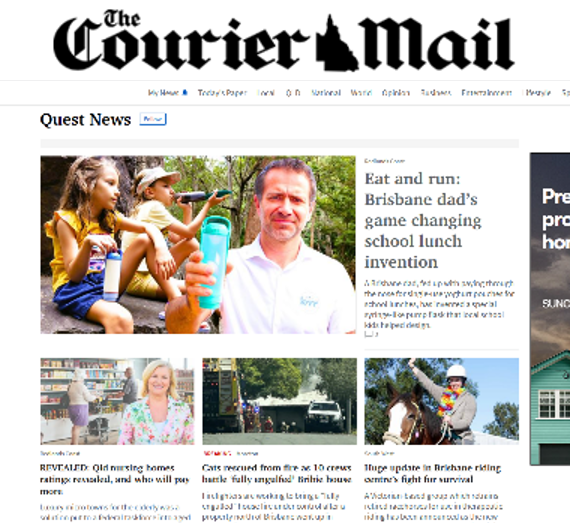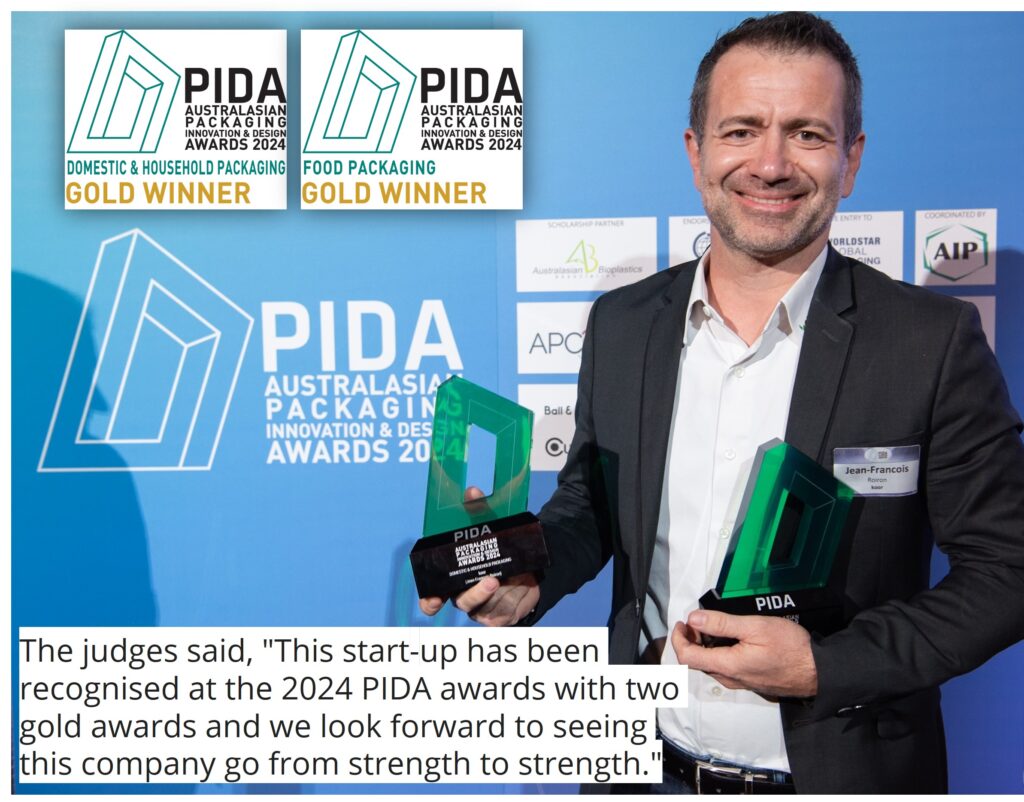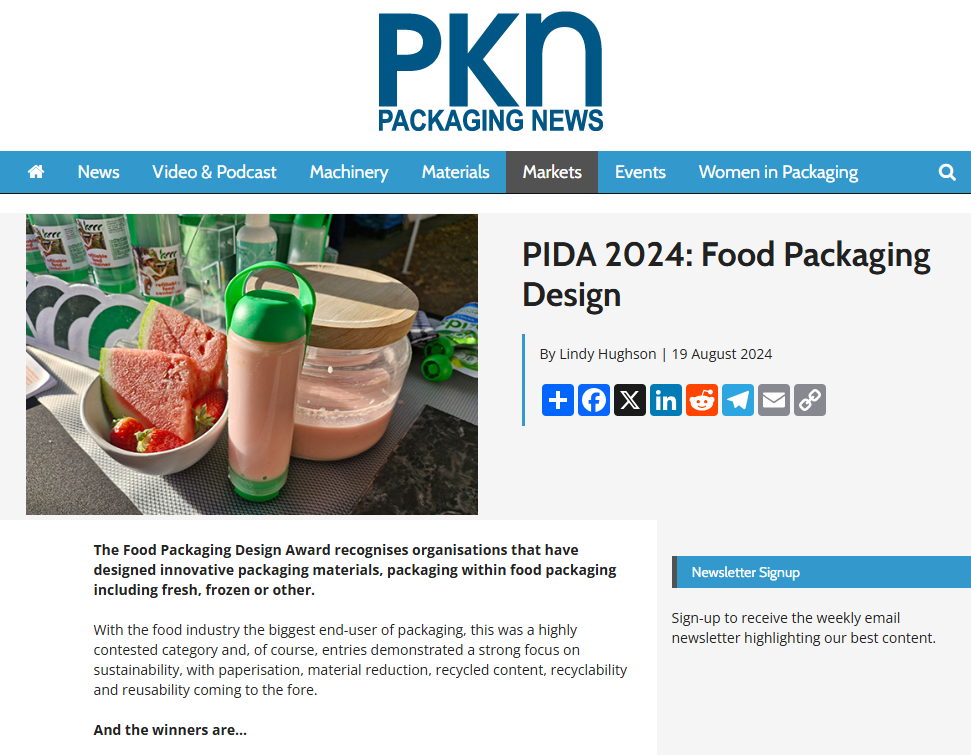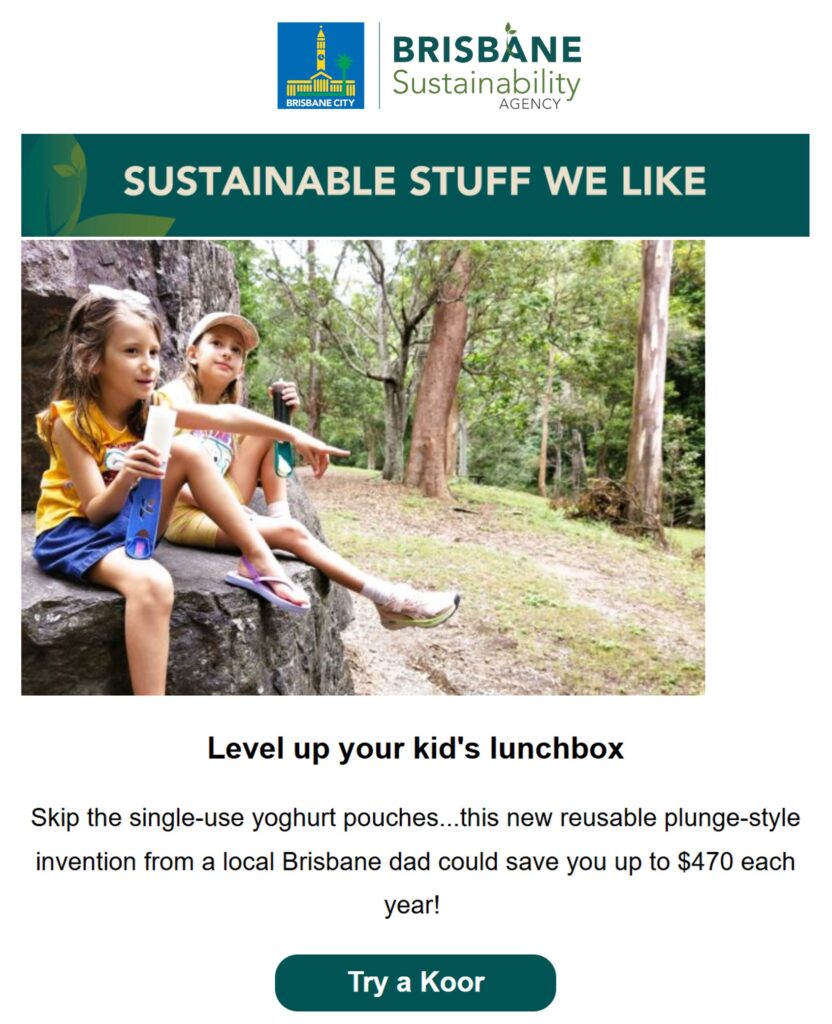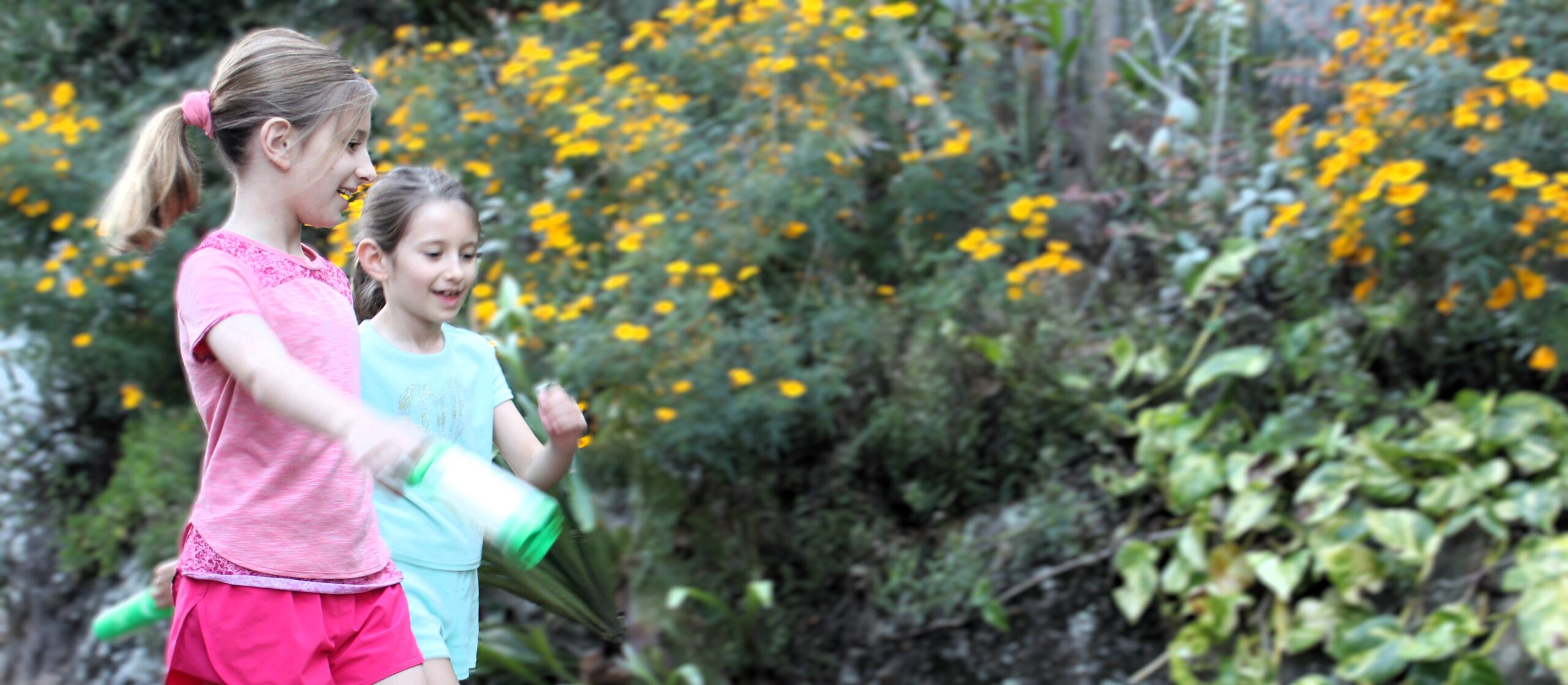
Eat wherever, whenever
The new refillable container!
Created by a Brisbane dad tired of single-use pouches.

Freedom
On-The-Go
Bring a refilled koor to eat when you want, where you want.
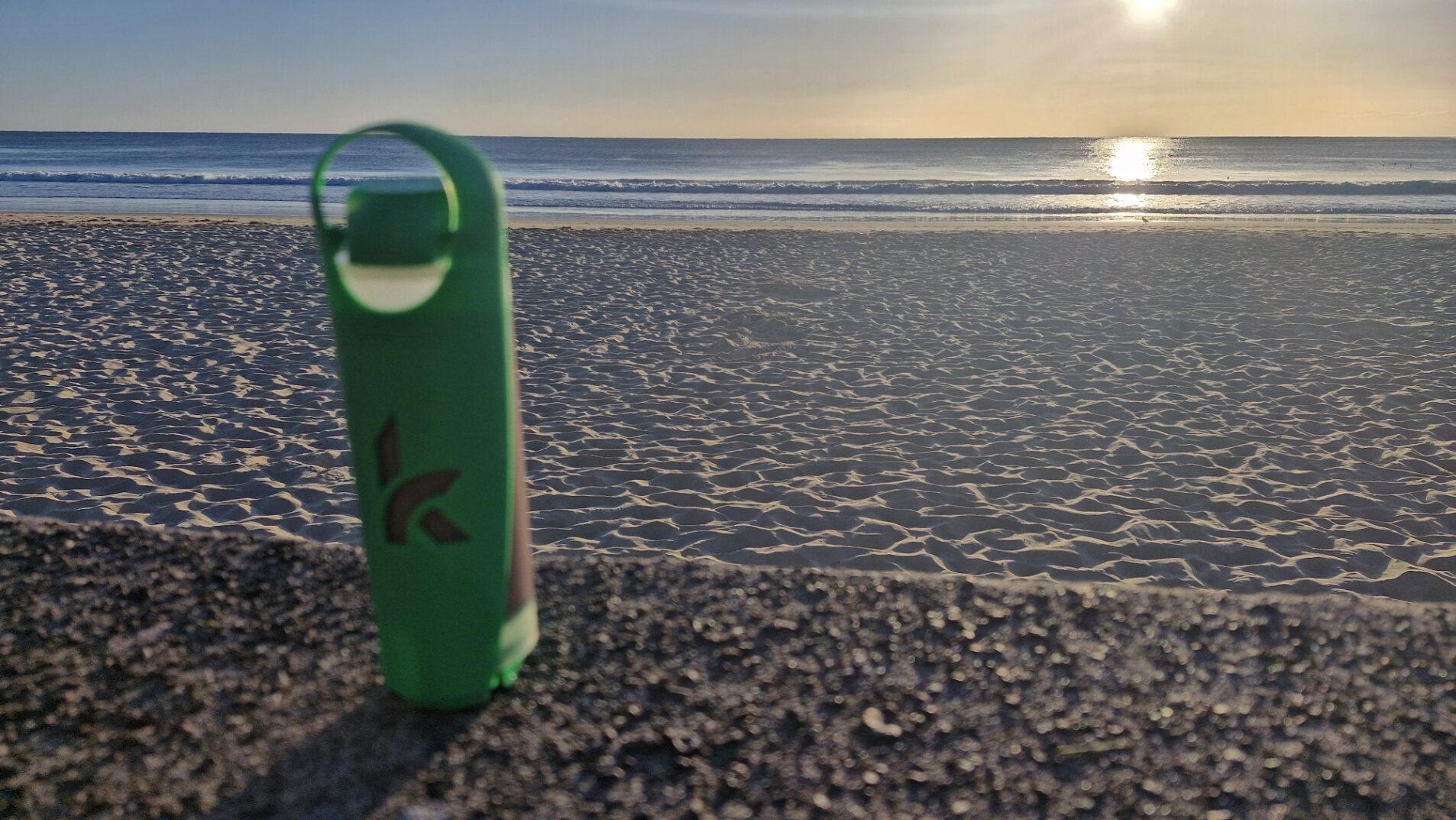
Sustainability
& Guilt-free
Reduce plastic waste and make an eco-friendly choice.
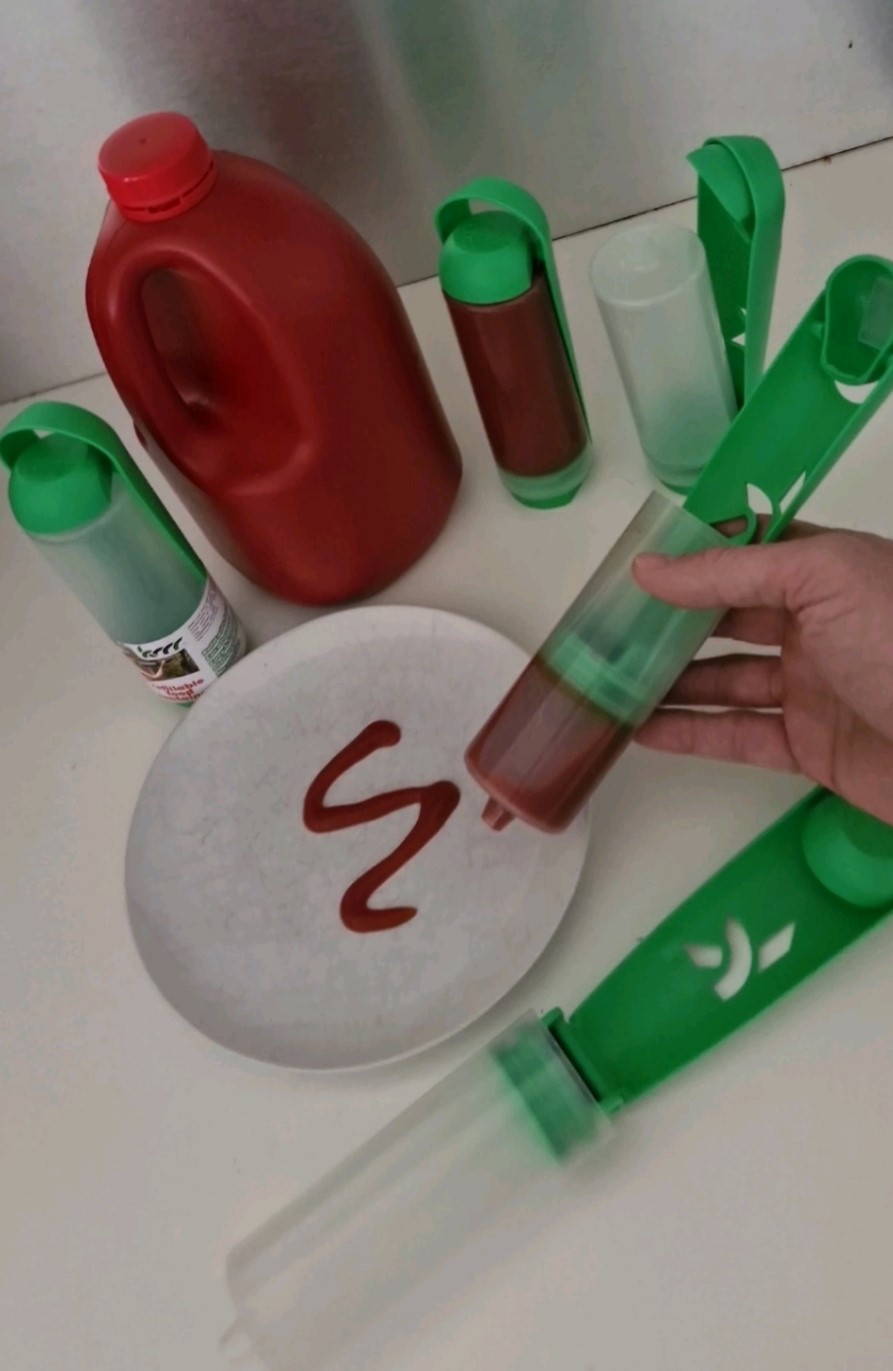
Thrifty food
solution
Save money! Buy in bulk or prepare homemade food!
Lunchboxes, picnics, walks, sport events, Road trips, camping…
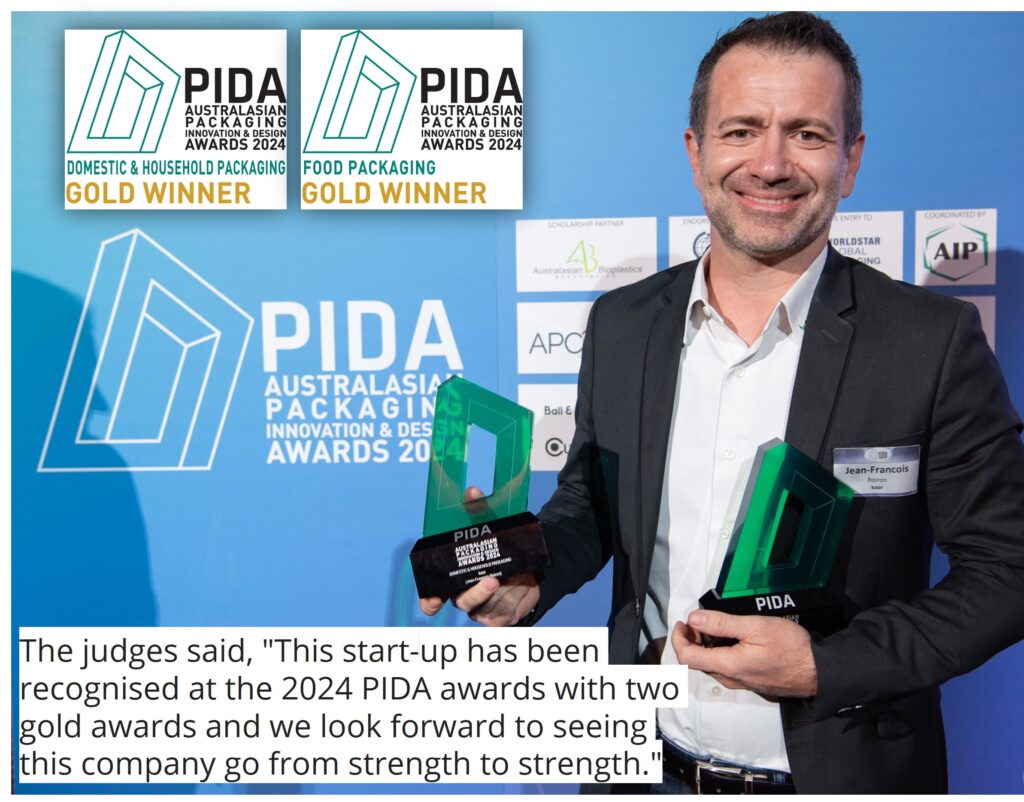
Koor Triumphs with Double Gold! 🏆🏆
We’re thrilled to announce that Koor has won two GOLD Awards at the Australasian Packaging Innovation & Design Awards 2024. Competing against the industry’s top packaging companies, this recognition highlights our commitment to excellence and innovation.
The judges described koor’s design as “ingenious” — it ensures continuous reusability and the replaceable components extend the packaging’s lifespan.
Order today and start saving $ and ♻️.
-
Product on sale
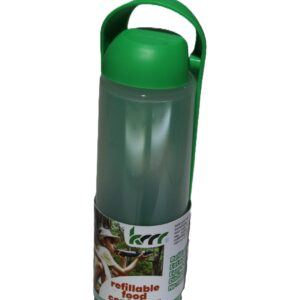 koor originalOriginal price was: $28.00.$23.00Current price is: $23.00. inc. GST
koor originalOriginal price was: $28.00.$23.00Current price is: $23.00. inc. GST -
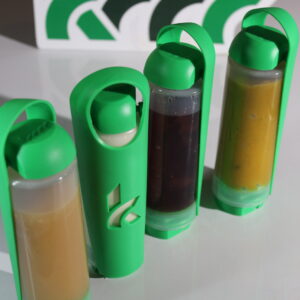 koor original – pack of 4$79.00 inc. GST
koor original – pack of 4$79.00 inc. GST
Nourish
Fill the koor® with bulk-bought, organic, homemade, or locally sourced food. Fewer preservatives, less highly processed food.
Save
Save by buying in bulk and refilling your koors. i.e. Yoghurt pouches cost $880/year and per person vs in bulk cost approx $400 – Saving $480 per year and per person.
Reuse
Reuse indefinitely.
It feels good not to throw away single-use food pouches everyday.
Convenient
Compact design. Easily fits in a bag and easy to carry.
Closes in a second thanks to the self-closing lid that protects the tip.
Easy
Easy to refill by pulling the plunger.
Dishwasher-safe.
A simple and easy to clean solution.
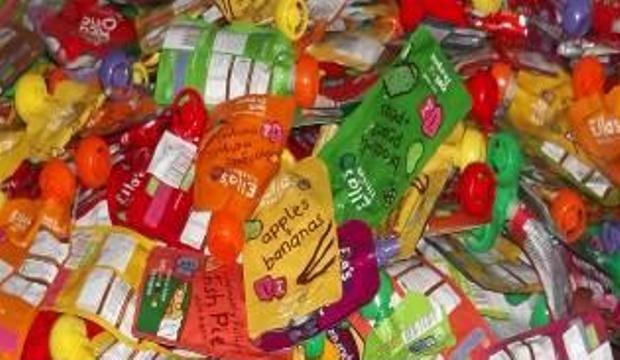
I used to give my kids yogurt pouches every day, not realizing this resulted in 6.4 kg of plastic waste per year, which ended up in landfills. Now that we’ve switched to using koors, I no longer feel guilty, and we’re saving money. Most importantly, I’m teaching my kids the importance of reusing plastics instead of throwing them away.
– Jean-Francois, Dad and koor founder
Press – Awards – Reviews
Perfect pre workout snack!
Emma, Mum from Brisbane
It is a great invention, so simple yet so clever! And very relevant to someone like me with two young kids.
Lochlan, Dad from Perth
The girls are loving their koors – Josie’s been taking hers to school all week!
Hannah, Mum of 2
koor is part of the Ellen MacArthur Foundation community and a member of the Australian Circular Economy Hub.
Proudly supported by the Advance Queensland initiative

Got a koor? Learn how to use it here.
Perfect for:
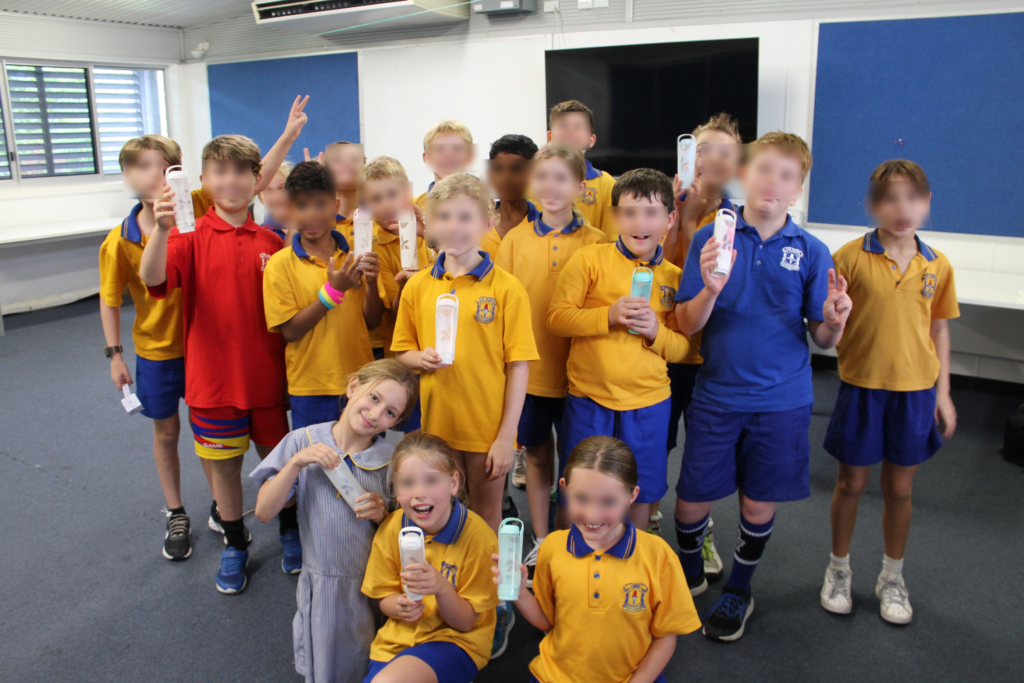
At school 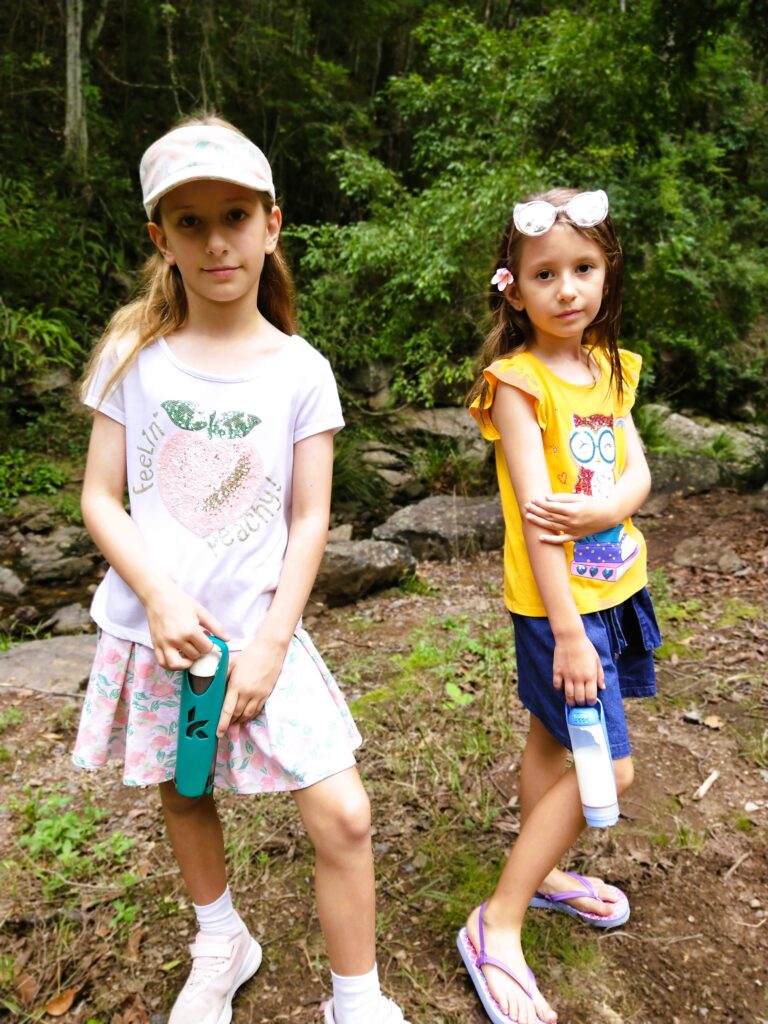
Outdoor 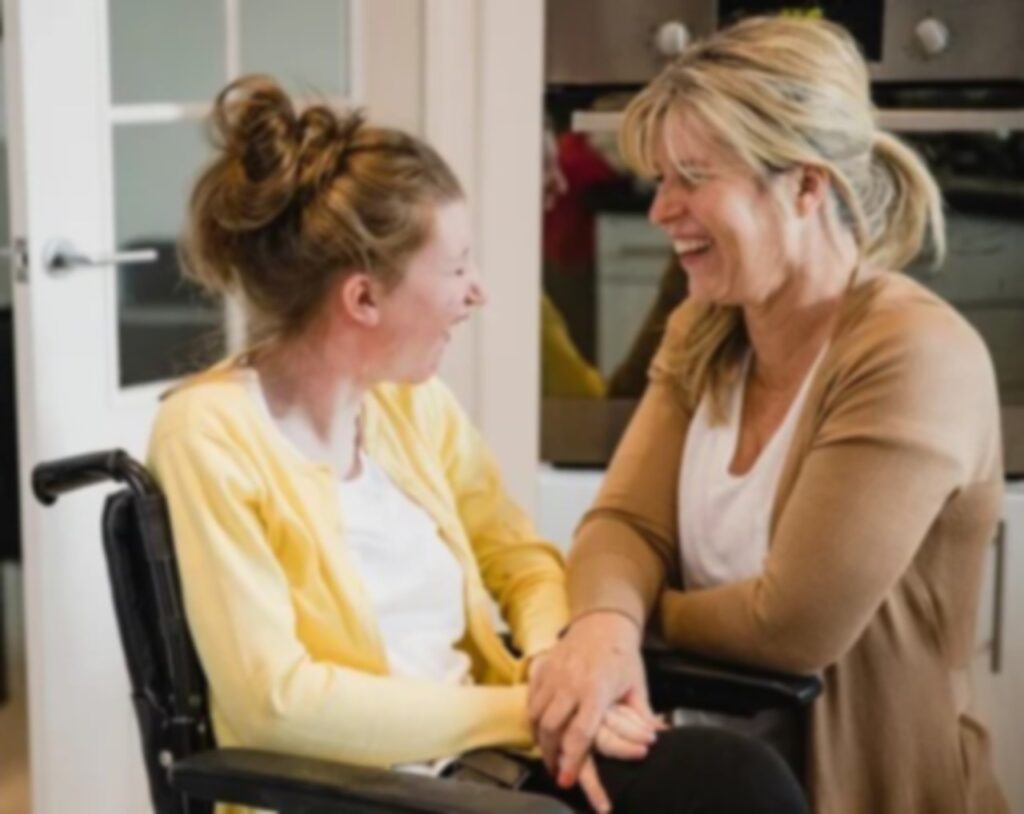
Accessibility 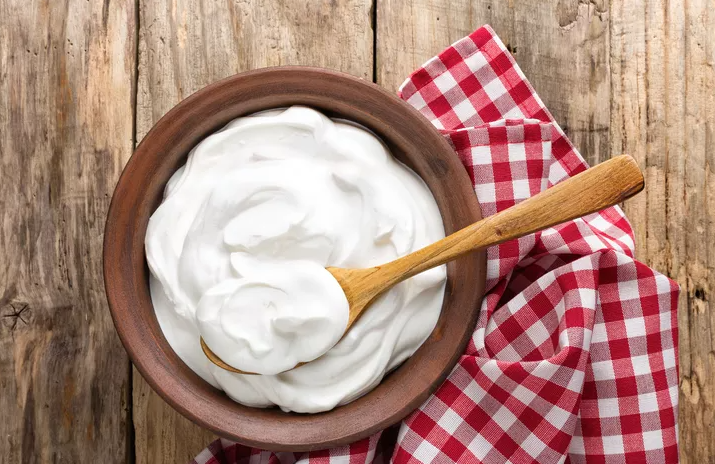
Homemade food 
Hike
Koor can help people facing eating challenges. It can be covered by your NDIS plan. We are working with many health professional to identify who can beneficiate from koor.
Frequently Asked Questions
Can you explain more how to use and care for my koors?
As all new product, it take a bit of practice to familiarise yourself with it. We have created a page to explain everything including how to look after it. Follow the guide: here .
How did the invention of this refillable bottle start?
I am Jean-Francois, the inventor of koor. As a father of two young children, I am always striving to provide healthy food for my kids. I make homemade yoghurts and fruit purees, but I struggled to find a suitable reusable container for their lunchboxes. This led me to reluctantly purchase food pouches from the supermarket.
I see four main problems with using single-use plastic food pouches:
- Cost: They are expensive, costing about six times more for yoghurt ($17/kg compared to $2.5/kg for homemade).
- Environmental Impact: They are not recyclable, contributing to the 449,000 tonnes of flexible plastic waste produced annually in Australia that ends up in landfills.
- Nutritional Concerns: They contain industrially processed food, often with higher amounts of sugar and preservatives.
- Environmental Education: They teach our kids that it’s normal and acceptable to throw away single-use plastics daily, rather than promoting environmentally friendly habits.
I needed a better solution. I tried refillable food pouches, but found them difficult to refill and clean. We also had a few accidents with the pouches unexpectedly opening in the kids’ bags.
Then I had an idea. I bought some large syringes and filled them with yoghurt. They worked well—easy to use and clean. However, I identified a few improvements:
- Filled syringes are cumbersome and too large for a kid’s lunch bag, so we created a foldable handle.
- We designed a self-closing cap – easy and fast to operate!
And thus, koor was born.
What problem does this refillable container solve?
We want to avoid the need for single-use plastic drink/food containers such as food pouches, festival and stadium cups, coffee cups, and yaourt cups.
Catastrophic environmental issues: Australians throw out 2.7 million single-use or disposable coffee cups every single day. This adds up to 1.8 billion cups thrown out every year [source Envisageworks (2021)]. The food pouches market is growing 6.5% per year [source Technavio].
Using single-use plastics is a practice informing our kids that it is normal to throw away things daily. I believe it’s not the right message to pass on to a generation that will need to make massive changes toward sustainability. Furthermore, these plastic containers are mostly manufactured overseas, adding supply chain issues and carbon emissions.
What type of plastic is used in the koor containers, and is it safe for food storage?
The plastic used for koor is a high-quality food-grade polypropylene.
Polypropylene (PP) is considered one of the safer plastics for use in food containers. Here are some key points:
- BPA-Free: PP does not contain Bisphenol A (BPA), a chemical found in some other plastics that has been linked to health issues,
- Non-Toxic: PP is non-toxic and does not contain harmful chemicals like phthalates.
- Chemical Resistance: It is resistant to many chemicals, which makes it suitable for storing a variety of substances.
We have selected a Premium Polypropylene that compiles with:
- FDA 21 CFR 177.1520: This ensures that the materials do not pose any health risks when used in food packaging
- EU Directive 2006/122/EC: Restrictions on the marketing and use of certain dangerous substances and preparations (perfluorooctane sulfonates)
- REACH: Protect human health and the environment from the risks posed by chemicals.
- and also RoHS, ISO 9001/2000, ISO 14001/2004, PAHs, UL 94 flame rating.
Polypropylene is widely recyclable in curbside collection. Just make sure to check with local recycling guidelines to confirm that PP is accepted in your area.
And remember to repair before you discard. Visit our Spare parts section.
How can koor solve the problem of single-use plastics?
Many people are concerned about the environment and want to reduce their use of single-use plastics. However, the convenience of these packaging often makes it challenging to switch. That’s where koor comes in. We believe koor offers a nearly as convenient alternative, with additional features that make it easier for everyone to embrace sustainability:
- Durability and Reusability: Koor is designed for thousands of uses, significantly cutting down on the need for single-use plastic containers. Made from food-grade polypropylene, Koor is durable, easy to clean, and features replaceable parts to extend its lifespan.
- Cost Savings: Using koor can save you money. For instance, buying yogurt in bulk and using Koor instead of single-use pouches can save a family approximately $470 per year per child.
- Environmental Impact: By replacing single-use plastics, koor helps reduce plastic waste and landfill contributions. Our design prioritizes recycling, with most parts being recyclable.
- Healthier Eating Habits: Koor promotes healthier eating by making it easier to carry homemade food on the go.
- Versatility: Koor isn’t just for food. It can also be used to store paints, glues, hand creams, shampoos, and more.
- Community Engagement: Koor’s development involved collaboration with local schools and aims to establish refill stations in bulk shops and supermarkets, encouraging a community-wide shift towards sustainability.
By addressing these key areas, koor offers a practical and sustainable solution to the growing problem of single-use plastics. How do you feel about using reusable containers like koor in your daily life?
What’s next?
Introducing koor is just the first step of our mission.
We have a bigger dream: circular economy.
We are developing an automatic washing and refilling station for koors. We have the vision that this station can be placed at supermarkets and will be used to refill customer’s koors directly from large food container. This container is then cleaned and refilled by the supplier with food/drinks. The stations can also be installed in festivals, train stations, airports… The wallet integrated in the koors process payment and record content, best-by date, sugar intake… Largely improving the user experience.
We hope this system could reduce the need of single-use plastics (i.e. yogurt cups, bottles, cans, food pouches) to zero. It’s ambitious. We know but we must do it for our future generations.
Contact us if you are interested, we always want to hear from people like us wanting to improve things.
What does koor means?
Koor sounds like “cours” in french which means run. It’s a reference to the fact that kids want to eat quickly and go back playing and running. Koor allows them to do that!
How can this container support individuals who face challenges with eating?
Is this food container recyclable ?
Koor containers are made from a highly recyclable material. Please check with your local council to confirm if they accept PP plastics. However, the silicone parts are not recyclable and should be disposed of in the landfill bin
What can I do if my koor is broken / need to be replaced?
When your koors reach the end of their life, please return them to us for recycling. We’ll give you a 15% discount on a new koor as a thank you. Additionally, each part of the koor can be replaced individually to extend its lifespan. You can order replacement parts on our website. We encourage our customers to repair rather than replace, and we’ve set our prices to support this. discount to replace to a new koor.
Visit Spare parts – koor® to order spare parts.
What should I do if the plunger is hard to push?
Koors are designed to last, but they need a little care! If the plunger becomes difficult to push, simply lubricate the inside of the barrel with a small amount of edible oil. This should help it slide smoothly again. You can order our recommended oil from our shop: Coconut oil spray to lubricate your koor

If you are also trying to reduce your single-use packaging waste, we are on the same journey!
Let’s join forces!


